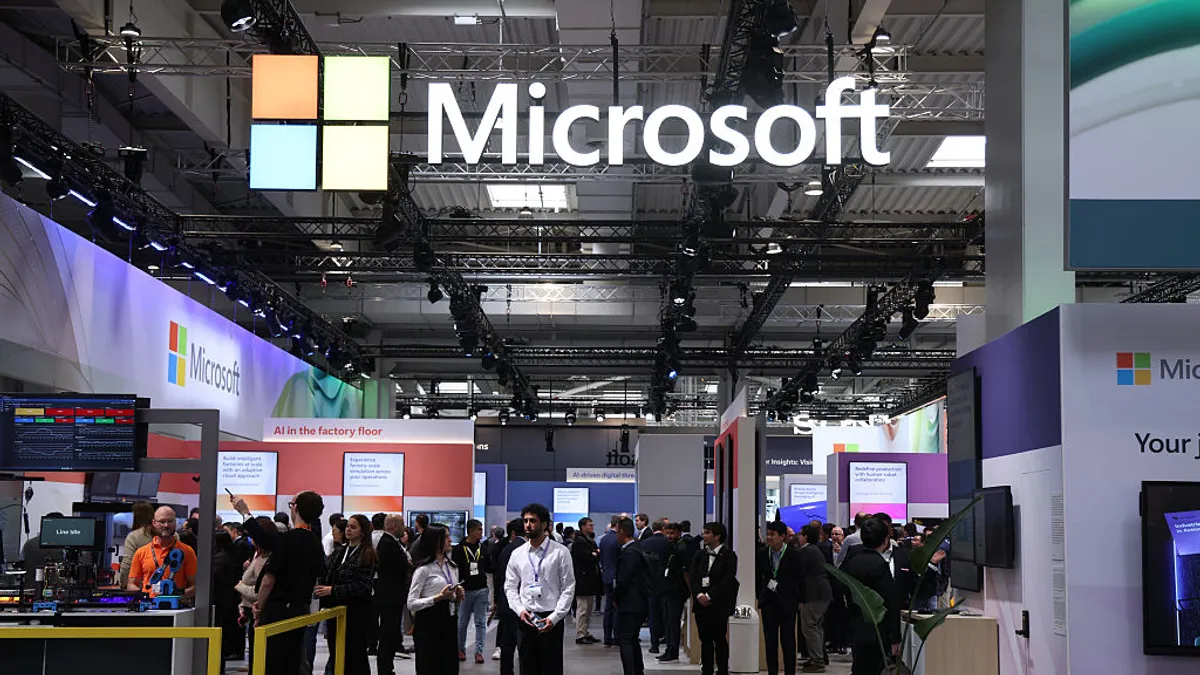Microsoft Backs Google's AI Agent Interoperability Standard
Microsoft has joined over 50 tech companies, including Salesforce, Oracle, and SAP, in supporting Google's Agent2Agent protocol for AI agent interoperability.
 Caption: The Microsoft pavilion at Hannover Messe 2025. The company is collaborating on AI agent interoperability standards.
Caption: The Microsoft pavilion at Hannover Messe 2025. The company is collaborating on AI agent interoperability standards.
Key Developments
- Microsoft’s Commitment: Microsoft announced its support for Google’s Agent2Agent (A2A) protocol, joining over 50 tech partners, including Salesforce, Oracle, and SAP. The move aims to enable seamless communication between AI agents across platforms.
- Multi-Agent Workflows: Microsoft highlighted the need for agents to operate across diverse models and ecosystems. The company plans to integrate A2A into Azure AI Foundry and Copilot Studio, allowing enterprises to build cross-platform AI workflows.
- Industry Trend: This aligns with a broader push for AI standardization, following initiatives like the Model Context Protocol and last year’s open-standard AI infrastructure alliance.
Why It Matters
- Enterprise Benefits: Jason Wong of Gartner noted that interoperability is critical for heterogeneous AI environments. However, challenges like security and pricing models remain unresolved.
- Competition vs. Collaboration: Despite tensions—such as Google’s EU complaint against Microsoft—tech giants are uniting around shared standards to accelerate AI adoption.
- Future Outlook: Microsoft called this a "step on a longer journey," signaling ongoing contributions to A2A’s development on GitHub.
Broader Context
The tech industry has increasingly prioritized standardization, from AI safety frameworks to . Yet, as Wong cautioned, "IT leaders are wary" of shifting standards.
Related News
AWS extends Bedrock AgentCore Gateway to unify MCP servers for AI agents
AWS announces expanded Amazon Bedrock AgentCore Gateway support for MCP servers, enabling centralized management of AI agent tools across organizations.
CEOs Must Prioritize AI Investment Amid Rapid Change
Forward-thinking CEOs are focusing on AI investment, agile operations, and strategic growth to navigate disruption and lead competitively.
About the Author

Dr. Emily Wang
AI Product Strategy Expert
Former Google AI Product Manager with 10 years of experience in AI product development and strategy formulation. Led multiple successful AI products from 0 to 1 development process, now provides product strategy consulting for AI startups while writing AI product analysis articles for various tech media outlets.